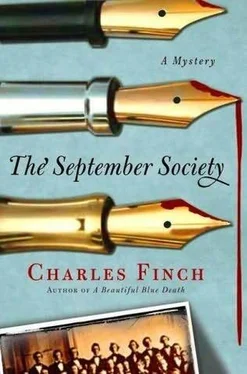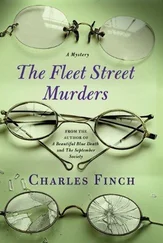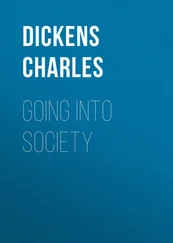Charles Finch - The September Society
Здесь есть возможность читать онлайн «Charles Finch - The September Society» весь текст электронной книги совершенно бесплатно (целиком полную версию без сокращений). В некоторых случаях можно слушать аудио, скачать через торрент в формате fb2 и присутствует краткое содержание. Жанр: Исторический детектив, на английском языке. Описание произведения, (предисловие) а так же отзывы посетителей доступны на портале библиотеки ЛибКат.
- Название:The September Society
- Автор:
- Жанр:
- Год:неизвестен
- ISBN:нет данных
- Рейтинг книги:4 / 5. Голосов: 1
-
Избранное:Добавить в избранное
- Отзывы:
-
Ваша оценка:
- 80
- 1
- 2
- 3
- 4
- 5
The September Society: краткое содержание, описание и аннотация
Предлагаем к чтению аннотацию, описание, краткое содержание или предисловие (зависит от того, что написал сам автор книги «The September Society»). Если вы не нашли необходимую информацию о книге — напишите в комментариях, мы постараемся отыскать её.
The September Society — читать онлайн бесплатно полную книгу (весь текст) целиком
Ниже представлен текст книги, разбитый по страницам. Система сохранения места последней прочитанной страницы, позволяет с удобством читать онлайн бесплатно книгу «The September Society», без необходимости каждый раз заново искать на чём Вы остановились. Поставьте закладку, и сможете в любой момент перейти на страницу, на которой закончили чтение.
Интервал:
Закладка:
In the past month he had given longer attention to himself, to his own virtues and flaws, than at any time in his entire life. By nature he was introspective, analytical, second-guessing, but now he forced himself toward self-evaluation. Lady Jane deserved that, before he put their friendship in peril with such a dangerous question.
What had he discovered? Well, he thought, he was too ingrained in his ways, too much a bachelor with his clubs, friends, and habits. He liked his eggs poached a certain way, to rise at a certain time, to take certain walks every evening, to make certain social rounds. He liked to read the papers in the morning and again in the evening-it consumed an alarming amount of time. He could occasionally be cross when his patterns were disrupted. His and Graham’s strange, useful friendship might not accommodate a third party well.
He didn’t think that he had any major flaws, no particular vices, but all of these small things perhaps added up to one: He was growing increasingly resistant to change. It was a quality he truly disliked in others. There were two sides to that coin; either it was all the more reason to change his life, to make a radical gesture (though that was secondary to his real, enduring love), or else it would be ungentlemanly to impose his foibles on the person he most admired and loved in the world.
What were his virtues? He was honest. He was happy and cheerful. He had little trouble admitting that to himself. For the sake of inquiry he also overcame his dislike of self-congratulation by admitting that he was generous. His generosity fell short of Jane’s, but he was generous-that is, not only with money but with time and tolerance, generous toward people’s bad impulses. They were well matched in that respect.
Was he ambitious enough? Was he a dilettante? Didn’t Lady Jane deserve to be the partner, the equal companion and helpmeet, of a Prime Minister or a bishop? His life was something of a disappointment to him in this way; he had hoped to be Prime Minister when he was young. He had assumed it would come to him. Instead he had gotten sidetracked and into this field-which was in no way shameful, and which he held his head high when discussing, but upon which the world bestowed very little prestige.
All of this flashed across his mind, swerving this way and that, sometimes even before words attached to the idea, sometimes more deliberatively.
By the time he arrived home he was nervous. Lack of courage, he thought, add that to the list of flaws. Faint heart never won fair lady. He decided to knock on her door.
Just as he stepped out of his coach, however, he saw a tall, slim man, about his own age, leaving Lady Jane’s house. His heart turned over-nobody he recognized. This was the peril of propinquity. Of course, Jane did go out more than he. (Not social enough, add that to the list.) He quickly changed course for his own door, though he stopped on the step to watch the man hail a cab. He was in a long gray morning coat. No beard, but a few side-whiskers. He had no watch chain, which Lenox found odd.
Then he felt ashamed of himself and went inside, determined to put the man out of his mind.
Later that afternoon, getting toward five, he asked Graham to take an invitation for tea next door.
“An invitation?” said Graham, plainly disconcerted. Usually the two friends dropped in on each other.
“She may have other plans today. I’m not sure, I was away.”
Graham said nothing more, but nodded and took the note.
In about five minutes Lady Jane came into the library. “An invitation? Is the Queen visiting?”
They both laughed. He was struck at her beauty, the sort of simple beauty he admired most, perhaps because that was his taste or perhaps because he associated it with her. It was the beauty of the good and the considerate.
“How do you do?” he asked, rising and smiling.
“Quite well, quite well-not a dull moment. There was that little party you missed at Toto’s last night. She nearly fainted because McConnell came in late with a dead cat in a bag. She has you to blame for that, hasn’t she?”
“I’m afraid so.”
She was her usual cheerful self, brimming with good humor, but once again Lenox detected in her some slightly careworn aspect.
“At any rate, they had a row of furious whispers, and all that saved the day was Edward Leicester arriving and tripping over the threshold, to everyone’s amusement.”
She was busy taking off her gloves, smoothing her gray skirt out, checking that her hair was still in place-all the minor offices Lenox was so accustomed to seeing her complete and yet were so estranged from his daily life, from the solitude of bachelorhood.
“Yes,” he said, “I’m afraid McConnell and Toto are rather backsliding. Fighting, I guess. It’s the absolute devil. We had a talk together, and he seemed like his old despondent self, I’m sorry to say.”
She nodded wisely and unhappily. “Toto is restless too.
I should have spotted it earlier. Perhaps I’ll take her on a trip to Bath so they can have some time separately. They married when she was too young, as I’ve said to you a thousand times. She had the maturity to love, but not to be married.”
“Yes.”
“Oh, but here I am prattling on like a girl. Ridiculous. How are you, more importantly, Charles?”
The look of affection in her eyes when she said this wrecked him. But all he said was, “Oh, very well, thank you. A puzzling case in Oxford. Two lads missing, no sign or reason why.”
“How odd.”
“It is, actually. There’s something more than usual at the bottom of it, I think, but I can’t say what it is because I don’t know.” He paused in thought and then shook himself out of it. “But tell me something of life here. I’m out of touch.”
She laughed. “After two days?”
She told him about the dinner party the night before, then about the rumors circulating that there would be a change in Parliament, and so they talked on in their usual fashion, laughing and conspiring, old jokes passing between them. A dozen times the fateful words rose to Lenox’s lips, and a dozen times he left them unspoken.
Then, as she rose to go, there was a frantic knock on the door, and McConnell rushed in.
“Oh, hullo, Jane,” he said. “Sorry to barge in, but I have urgent news-for you, Charles.”
“What is it?” both Lenox and Lady Jane asked at once.
“I’ve had a telegram from my friend Radley.”
“Radley?”
“Up at Oxford. He’s a don there. It seems the police have found a body.”
CHAPTER FOURTEEN
L enox would never forgive himself for returning to London. Of all the selfish acts in his life, was there any worse than this? Had he lost his mind?
Sitting on the train, watching the dim and ashen light of evening spread over the countryside, its darkness his own, he asked these questions again and again in his mind. For once there was no solace in the prospect of finding the killer. For once no comfort rallied to dethrone his self-doubt.
“Whose body?” he had asked McConnell back in London.
“It was Payson’s, I believe. My friend sent the telegram off hastily, though, so it might well be a false alarm.”
“I’m certain it’s not. I’ve been unfathomably stupid. Found where?”
“Christ Church Meadow, just behind-is it Merton?”
“That’s right,” Lenox said. “I say, could I see that telegram?” McConnell handed it over. It read: THOMAS BODY FOUND STOP CH CH MEADOW
It had been sent from the post office opposite Pembroke.
“Radley?” said Lady Jane.
“A friend of mine from the Royal Society. Awfully good chap. Not at all alarmist, I shouldn’t say. I went round to his rooms for a visit while you were with Lady Annabelle and told him about the case.”
Читать дальшеИнтервал:
Закладка:
Похожие книги на «The September Society»
Представляем Вашему вниманию похожие книги на «The September Society» списком для выбора. Мы отобрали схожую по названию и смыслу литературу в надежде предоставить читателям больше вариантов отыскать новые, интересные, ещё непрочитанные произведения.
Обсуждение, отзывы о книге «The September Society» и просто собственные мнения читателей. Оставьте ваши комментарии, напишите, что Вы думаете о произведении, его смысле или главных героях. Укажите что конкретно понравилось, а что нет, и почему Вы так считаете.












